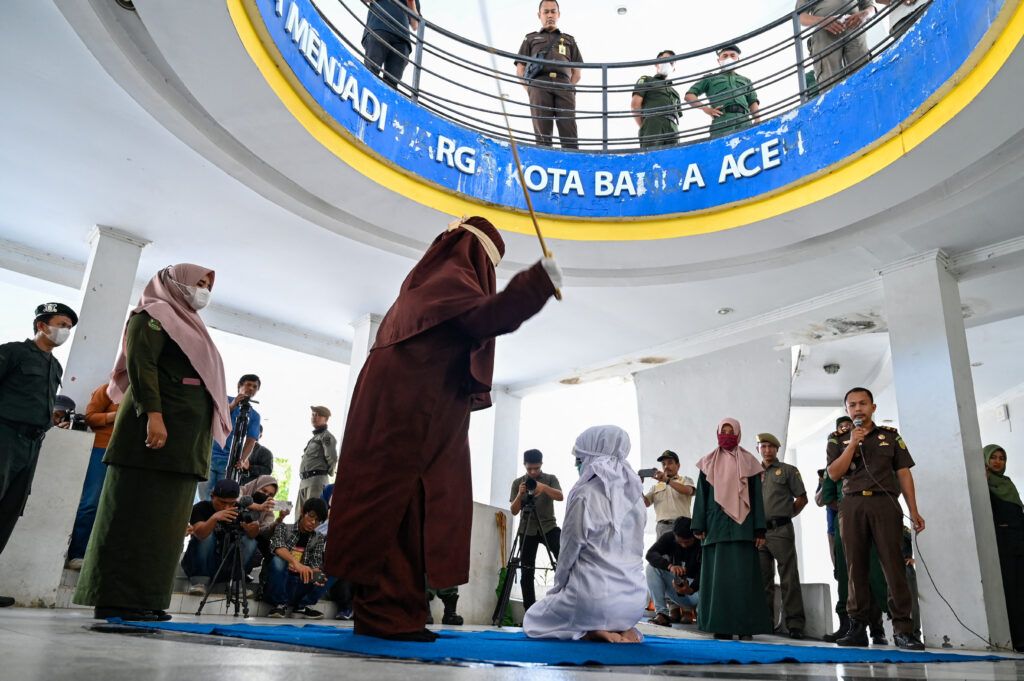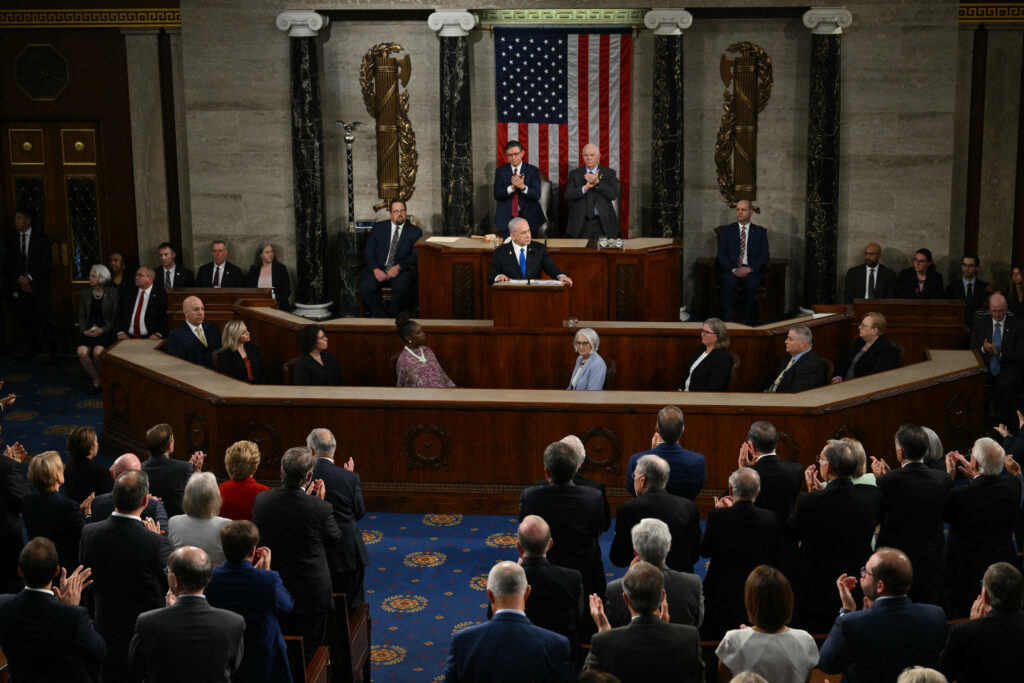Indonesia’s New Penal Code May Reverberate Beyond the Country
- - December 22, 2022

By Gyorgy Busztin, Visiting Research Professor, MEI-NUS
Will he or will he not? This is the question Indonesians await an answer to as the signature of President Joko Widodo remains the last barrier between an Indonesia as we know it, and one many Indonesians would patently dislike to see coming.
The country’s new penal code is a compilation of harsh rules and regulations — expanding the definition of blasphemy, criminalising some insults against the President, tightening rules governing public protest, and outlawing extramarital relationships, among others. Some human rights advocates have described the new rules as a major tightening of personal freedoms in the country.
The laws, unanimously adopted by parliament, reflect growing pressure from an increasingly conservative Muslim majority society that wants to see its values becoming norms in the multi-ethnic and multi-religious nation.
Attempts to revise the penal code have been a fixture of Indonesian politics since the 1960s. Founding President Soekarno tried, and failed, to change it, while his successor, Suharto, deemed the issue too divisive to be tackled. Since then, other leaders have made halting efforts to change the laws, but these were mostly never taken seriously.
Then, in 2019, a serious attempt was made by the “revisionists”, triggering mass protests, and forcing Mr Jokowi to put the matter on ice. He explained that any decision would have to be accompanied by a wide public debate, which the Covid-19 pandemic made impossible.
However, lawmakers gave the issue a strong push, and the revision passed — without the public debate. But in a clear indication of a changing public mood, there were no major protests when parliament passed the draft law.
It must be said that several of the law’s more draconian facets have been tempered by many caveats. For example, extramarital sex offenders can be only reported to authorities by close relatives, such as spouses, parents, and children of the culprits. Leaders have come out to stress that foreigners need not fear arrest or harassment.
A cursory look at the new penal code indicates that lawmakers decided to placate conservative Islamic parties and promote their values that contrast with the permissive, moderate, and tolerant nature of Indonesian society.
Islamic parties have for long clamoured for Sharia rule, which is now only implemented in the northwestern province of Aceh as a sop to locals there who fought to secede. But Indonesia’s decentralised system of government means local authorities can implement Sharia within their own jurisdictions in anything but name. Harsh local rules pertaining to the dress code, and even when women can be in public (no loitering around after sunset, please) hardly differentiate such areas from places where Sharia is living reality – if not with hudud laws in force.
Concerned observers
The US, the United Nations, and the European Union have all voiced their misgivings about the law. But the range of concerned observers does not end with the usual suspects. Indonesia’s outside critics, including influential international NGOs, harbour legitimate concerns over the fate of the country’s religious and ethnic minorities, who may be on the receiving end of the new law — particularly Indonesian Chinese, who are predominantly Christians and have struggled for centuries to fit into their wider social environment. The community, which is hugely influential in the country’s economy might face difficult choices – among them capital flight – if not fully reassured about its future. The reformers of the Gulf might also have a stake in what happens – or not – in Jakarta.
Both Saudi Arabia and the United Arab Emirates have in recent years moved to roll back strict religious laws to make themselves more attractive to the global talent they will need to jump-start their economic transformation efforts, as well as to attract investment, and rehabilitate their reputations.
This drive by the two Gulf reformers saw a natural ally in the world’s most populous Muslim majority nation, where the practice of Islam, until recently, was marked by moderation and tolerance. Should this expectation be frustrated, the Gulf reformers may feel let down and may temper their ambition to build closer economic ties with Indonesia.
A silver lining?
Still, perhaps not all is lost for the future of moderate Islam in Indonesia, presidential signature or not.
The new penal code, less conspicuously than its illiberal injunctions, contains a ruling that may prove decisive for the country’s future: It doubles down on defending Pancasila, Indonesia’s “Oath of Allegiance”, which clearly defines a secular path for the country. There is to be no tampering with Pancasila, the penal code warns starkly warning in the penal code.
So, is the new penal code a trade-off for maintaining a secular Indonesia in the face of pressure to do the opposite? There is no telling yet, but Pancasila as a bulwark to “Shariaisation” remains a strong, if lonely, guarantor for all those who do not want to wake up one day in a Jakarta that resembles Kabul.
President Jokowi, who was in Brussels recently, would no doubt have had to face European politicians and lawmakers who will not have minced on Indonesia’s new penal code. However, Jakarta has traditionally been impervious to foreign pressures. But so long as Mr Jokowi has not committed pen to paper, hope remains that, at the very least, some of the most illiberal elements of the Code may be whittled down. After all, such a far-reaching move, which will not only reverberate through the country and region, but even places far afield as Gulf capitals, deserves a better airing.
Image Caption: A woman is caned by a sharia policeman as a punishment for being caught in close proximity with a man in Banda Aceh on December 21, 2022.
Chaideer Mahyuddin / AFP
About the Author
Dr Gyorgy Busztin is Visiting Research Professor at the Middle East Institute, NUS.
A career diplomat and an academic, he served, between 2001 and 2011, as Hungary’s ambassador to Indonesia and subsequently, Iran. In 2011, Dr Busztin was appointed deputy envoy of the United Nations in Iraq, responsible for the political, analytical, electoral and constitutional support components of the UN’s mission in Iraq. He served at the level of assistant secretary-general until October 2017.
Dr Busztin holds a degree in Arabic history from Damascus University, Syria and a Doctorate in Arabic language and Semitic philology from Lorand Eotvos University in Hungary. In addition to his native Hungarian, he speaks English, French, Arabic, Farsi/Dari (Persian), Malay (Indonesian) and Russian. He believes strongly in political and intercultural dialogue and has engaged leading politicians, intellectuals, religious leaders and representatives of civil society.
More in This Series
More in This Series
- Jean-Loup Samaan
- - July 11, 2024
- Aisha Al-Sarihi, Ehsan Rasoulinezhad, Jinseok Sung
- - June 20, 2024








